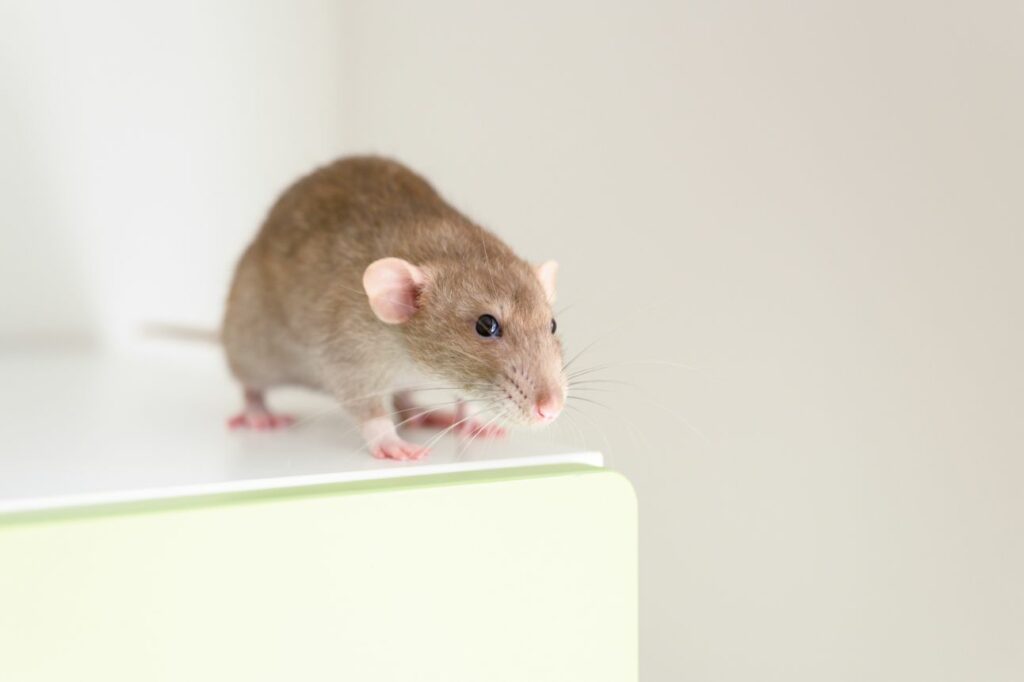I have come across several owners who are concerned about their pet rats drinking excessive amounts of water.
While it may be normal for rats to drink water, an increased desire for water could be a sign of an underlying problem.
In this blog post, we will take a closer look at rat behavior, the factors that affect their drinking habits, the common causes of excessive thirst, when to be worried, and preventive measures to ensure your rat’s health.

Understanding Rat Drinking Behavior
Rats are social animals that have unique behaviors and habits. As pets, they are intelligent, affectionate, and playful creatures that require a lot of attention from their owners.
Rat Drinking Habits
Like humans, rats need water to survive. They drink water to keep themselves hydrated, aid digestion, and regulate their body temperature. On average, rats drink about 10-15 milliliters of water per 100 grams of their body weight per day. However, this amount can vary depending on several factors.
Factors Affecting Rat Drinking
Several factors can affect how much water rats drink. These include:
- Age: Younger rats tend to drink more water than older ones.
- Size: Larger rats may drink more water than smaller ones.
- Activity level: Rats that are more active may drink more water.
- Diet: The type of food and how much water it contains can affect a rat’s drinking habits.
- Environment: Rats living in hotter and drier environments may drink more water.
Common Causes of Excessive Thirst
While drinking water is essential for a rat’s health, excessive thirst could be a sign of an underlying problem. Here are some of the common causes of excessive thirst in rats:
Dehydration
Dehydration occurs when there is not enough water in a rat’s body. This could be due to several factors, such as lack of access to water, excessive urination, diarrhea, or vomiting.
Dietary Issues
A rat’s diet plays a crucial role in its overall health. Feeding your rat a diet that is high in salt, sugar, or protein can cause excessive thirst. Additionally, some fruits and vegetables, like watermelon and cucumber, have high water content, which can make rats drink more water than usual.
Health Problems
Several health problems can cause excessive thirst in rats. These include kidney disease, diabetes, liver disease, and hormonal imbalances.
When to Worry
While it is normal for rats to drink water, excessive thirst could be a sign of an underlying problem. Here are some signs to look out for:
Signs of a Serious Problem
- Loss of appetite
- Weight loss
- Lethargy
- Weakness
- Changes in behavior or personality
- Difficulty breathing
- Seizures
When to Consult a Vet
If your rat is drinking excessive amounts of water and showing any of the signs listed above, it is important to consult a veterinarian. Early detection and treatment of underlying health problems can prevent serious complications.
Preventive Measures
Taking preventive measures can help ensure your rat’s health and well-being. Here are some things you can do:
Maintaining Optimal Hydration
Make sure your rat always has access to fresh and clean water. Change their water daily and ensure that their water bottle or dish is not contaminated.
Proper Nutrition
Feed your rat a balanced diet that is appropriate for their age and size. Avoid feeding them foods that are high in salt, sugar, or protein. Consult your veterinarian for recommendations on the best diet for your rat.
Regular Health Checks
Schedule regular check-ups with your veterinarian to ensure that your rat is in good health. Early detection and treatment of health problems can prevent serious complications.
Conclusion
While drinking water is essential for a rat’s survival, excessive thirst could be a sign of an underlying problem.
By understanding rat behavior, the factors that affect their drinking habits, the common causes of excessive thirst, when to be worried, and preventive measures, you can ensure your rat’s health and well-being.
Remember, always consult your veterinarian if you are concerned about your rat’s drinking habits or overall health.
- How Long Do American Eskimo Dogs Live? Important Factors and Care Tips - September 29, 2023
- Do American Bulldogs Need Grooming? Essential Tips and Care Guidelines - September 29, 2023
- Do Bengal Cats Enjoy Playing? Essential Tips for Keeping Them Active - September 29, 2023